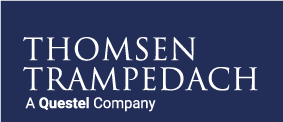Online Marketplace Monitoring
How to Protect Your Brand on Online Marketplaces?
When talking about Online Marketplaces, we normally think of Amazon, eBay, and the big dragon in the east, Alibaba Group. This is not surprising given that a large share of the multi-trillion dollar Online Retail Market can be attributed to these three players.
However, not all Online Marketplaces are large enough to make it to official rankings according to market share. The Online Retail Market is dominated by big players, but continues to be fragmented due to presence of small niche players, which provides both opportunities and challenges for brand owners.
Marketplace monitoring should include the largest, the niche and the up-and-coming ones. Only in this way can brand owners cover the majority of the Online Retail Market, whilst ensuring that abuse is also detected on the smaller platforms.

A smart mix of technologies, legal and technical expertise allows us to detect abuse with a global reach and to reveal patterns, which permits for efficient and impactful enforcement.
Our Solution
Thomsen Trampedach monitors across online marketplaces for sellers and shops selling counterfeit goods, false impersonation, copyright, trademark infringement and non-compliance of distributors. Thomsen Trampedach tailors the strategy to each client and focuses on delivering a transparent and efficient solution for all needs.
Detection
Focus on a dynamic list of up to 50 Online Marketplaces that are selected based on relevance and where we can have the biggest impact. Thomsen Trampedach will conduct an initial screening of Marketplaces.
Quarterly review of over 200 + marketplaces to ensure focus lies where the issues exist.
Filtering of results and proactive identification of infringement using human intelligence.
Specialized legal knowledge allowing us to assess a wide variety of legal issues on a daily basis, ranging from counterfeit sales to difficult cases of unfair competition.
Investigation & Enforcement
We are experienced with monitoring and enforcing on niche marketplaces requiring both the use of local language and an understanding of local laws. Through our case-management and enforcement system Pliano®, our experts will make use of identifiers such as company names, contact information, images and user names to reveal further cases. Once the scope of the abuse has been established, our experts will send complaints through Pliano® to the relevant platform on the basis of local and international laws and regulations.

We store all relevant data related to the case in Pliano®. Each “case” includes a URL, investigation notes, suggested action, a screenshot, the takedown process and correspondence between infringer, client and us.
We always advocate for an educational approach where bad faith is not evident. This is because many platforms don’t provide the user with the option of filing counter notifications, and the fact that not all Internet users have a complete understanding of the law. This approach will have the biggest impact, while preserving your goodwill, and may provide you with up-selling opportunities.
Premade enforcement mechanisms for over 200 + Marketplaces.
Your Questions
Our Answers
An online marketplace is, at the most fundamental level, any website providing a platform for independent sellers to market products and services as well as allowing customers to make purchases directly on the same website. This means that online marketplaces are not synonymous with e-commerce in general, the difference being precisely the way in which online marketplaces act as platforms for other sellers.
Online marketplaces account for the majority of e-commerce transactions and the volume of goods sold naturally make them a vital arena for counterfeit prevention and brand protection. The 100 largest online marketplaces had sales of over USD 1.66 trillion in 2018, a number that has since continued to grow at an incredible pace. Brand protection on online marketplaces therefore has the potential to mitigate loss of revenue from IP infringement, as well as reputational damage thanks to the large number of consumers involved.
Fundamentally, brand protection on online marketplaces consists of identifying infringements through monitoring and removing these by enforcing your intellectual property rights.
Many providers provide tools that aim to identify infringements on online marketplaces via algorithms. While the idea of automatic detection is naturally attractive, such tools tend to require significant input from brand owners to ensure optimisation as well as produce large numbers of false positives (especially where the infringements are diverse and difficult to detect). We believe that a focused approach based on manually monitoring key marketplaces optimised through periodic screenings is effective and more cost efficient for all but the largest consumer brands.
Online marketplaces are highly diverse, ranging from diversified operations (take Amazon) to specialty marketplaces aimed at promoting a particular type of product (e.g. chemicals) or the exports of a specific country. Given the number and diversity of online marketplaces, our approach at TT is normally to initially perform a far-reaching screening of all the largest marketplaces globally. This allows for an overview of issues affecting the brand in question and for an efficient allocation of monitoring time. Where such a screening is not possible, it is nevertheless vital that the most important marketplaces in key geographical regions are monitored. In North America and Europe this would naturally include the Amazon and Ebay platforms, in China the Alibaba platforms and JD, in Latin America Mercado Libre, and so on.
Identifying infringements naturally brings about the desire to enforce. Many larger online marketplaces operate intellectual property platforms that facilitate take down actions by brand owners. Other marketplaces require take downs to be done via email, and some even require you to use scanned forms. While brand protection platforms greatly facilitate take downs, recourse to email communication is sometimes made necessary by the fact that the platforms can only be used for a limited number of issue types.
The Alibaba group’s platforms represent the largest cluster of online marketplaces in the world and given that Alibaba offers a centralised brand protection platform, AliProtect, covering all its marketplaces, it is certainly one where all brand owners should be present.
To enforce through AliProtect, you will first have to register an account, providing basic information such as contact details. In order to begin enforcing, you will then have to register your IP, which can include trademarks, copyrights, registered designs, patents and utility models. You will need to provide scans of certificates for registered IP (evidence of authorised exemplars for copyright), as well as a scan of your business license (e.g. Certificate of Incorporation, Certificate of Good Standing, extract from the Commercial Register). Note that where IP rights are owned by diverse entities within a group, it is important that the names of the right holders must match with the business license and the account holder names involved. Where an external entity wishes to enforce on behalf of the registered right owner, a valid Power of Attorney is required. It should also be noted that on the Alibaba platforms targeting China specifically (in the Chinese language), IP registered or valid in China (e.g. WIPO TM registration extended to China) is required.
To report listings, you can either search directly with the AliProtect tool or copy paste URLs from the marketplaces in question; completing the report requires you to select the IP infringed from the selection of IP that you have registered. These reports will then be processed within a few days. Alibaba notifies sellers of IP infringement reports, and sellers have the possibility of giving counter-notifications. Alibaba will then decide whether the counter-notification is sufficiently persuasive. As there is little the brand owner can do after a counter-notification has been accepted, it is worth backing reports up with evidence.
JD.com offers a brand protection platform quite similar to AliProtect. Given that JD.com targets China specifically, you will need Chinese certificates for your trademarks and other registered IP. In order to use the JD.com enforcement tool, you will first need to register an ordinary customer account by clicking on “Create Account” at log in. New accounts are normally approved within a few days.
Once your account has been approved, you can proceed to registering your company and IP information at https://enipr.jd.com/rights/rights_index (inspired by AliProtect). You can begin filing complaints once this step has been completed. It is vital to keep in mind that with JD.com, you will always need to attach the images of both the infringing product and the original, as well as a document clarifying the infringement on the basis of a comparison between the two images.
Similarly to AliProtect, the seller is notified of the complaint and has the opportunity to respond.
Brand owners and agents can report infringing listings on the Amazon marketplaces reported via an online form that is available when signed in to Amazon with a user account (https://www.amazon.com/report/infringement, but all country-specific sites have their own forms). The form is fairly straight-forward and allows for 50 listings to be reported at the same time. A brief description of the infringement and the IP rights relied on is required, and on country-specific sites, the trademark relied on must cover the country concerned.
Brand owners can enforce their rights against infringing listings by using the Notice of Claimed Infringement (NOCI) form provided by eBay (https://ir.ebaystatic.com/pictures/aw/pics/pdf/us/help/community/EN-NOCI.pdf). This form must then be sent to eBay in a scanned form. While effective, using the form is time-consuming and only allows for a very limited number of listings to be targeted at the same time. For this reason, eBay operates the VeRO programme for verified right owners. This function allows listings to be reported directly online. However, it is accessible upon invitation only (though using the NOCI form several times will suffice to secure an invitation).
MercadoLibre offers brand owners a tool allowing for the reporting of IP infringements. Unfortunately, the tool is functionally separate for all the many country-specific marketplaces the company operates, meaning that the same process must be repeated on all marketplaces in order to gain global enforcement ability. The application for the Argentinian marketplace can be found at https://www.mercadolibre.com.ar/noindex/pppi/rights/enroll/. The form requires contact information, basic details regarding the rights owner and (for registered IP) a registration certificate covering the relevant country.
Mitigation Of Risk
Thomsen Trampedach will suggest the opening of online stores on platforms where your IPR is being abused, in order to educate Chinese consumers and increase your own sales.
Thomsen Trampedach will suggest, and can register, Chinese domain names across all TLDs (specifically .cn and .中国), as well as all new Chinese gTLDs.
Thomsen Trampedach can register user names across Chinese social media sites and other platforms, as well as IPP platforms like the WeChat Brand Protection Platform.
Offline Actions
Together with our local partners, we can help with offline investigations and onsite operational support, as well as trademark registration and litigation.
Interested in a marketplace screening?
We help dozens of brands with monitoring and removal of infringements on online marketplaces. Reach out to us for a one-time landscape report where we screen for abuse of your brand. This screening will include, an overview of the abuse found on marketplaces, a brand protection strategy tailor-made for your specific needs balancing enforcement outcome and resources spent.


